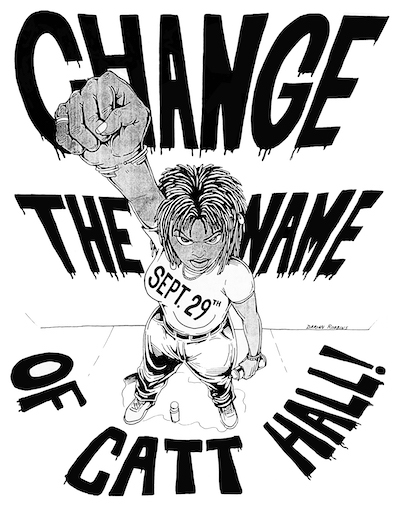Iowa State University Professor Matt Liebman has warned university President Gregory Geoffroy that the Leopold Center for Sustainable Agriculture risks losing its “national and international reputation for excellence in scholarship and service” unless ISU’s administration embraces the center’s mission and removes the it from the supervision of the College of Agriculture. Liebman is a professor of agronomy who holds the Henry A. Wallace Endowed Chair for Sustainable Agriculture. His three-page letter to Geoffroy has been making the rounds in the Iowa environmental community this week. I received it from multiple sources and posted the full text after the jump.
The impending departure of the Leopold Center’s interim director prompted Liebman’s letter. He notes the “rapid turnover” and “absence of stable leadership” at Leopold since 2005, as well as the “failed and controversial national search to fill the director position” last year. Bleeding Heartland covered that fiasco here and here. Following a national search, ISU offered the top job at Leopold to plant pathologist Frank Louws, the preferred candidate of the Iowa Farm Bureau. Corn expert Ricardo Salvador had received higher evaluations from the search committee, but ISU didn’t offer him the job even after Louws turned down the position. Since then, the Leopold Center has had interim leadership with no target date set for another director search.
In his letter to Geoffroy, Liebman said the “sense of uncertainty as to the Center’s future has also created wariness among those who might be applicants for the director’s position if and when a new search is initiated.” He reminded the ISU president that the 1987 Iowa Groundwater Protection Act defined a three-fold mission for the Leopold Center:
(1) identify the negative environmental and socioeconomic impacts of existing agricultural practices, (2) research and assist the development of alternative, more sustainable agricultural practices, and (3) inform the agricultural community and general public of the Center’s findings. It is important to recognize that this mandate creates, by design, a dynamic tension between conventional and alternative forms of agriculture. This tension is a healthy part of the Center’s work; it does not indicate the Center is failing to fulfill its mission or communicate effectively. The Center has a particular responsibility to focus on the environmental problems of agriculture and their solution.
In order to “to put the Center back on track and foster circumstances that would be conducive to a national search for a permanent director,” Liebman argued that the ISU administration
needs to demonstrate its unequivocal support for the Leopold Center’s three-part mandate. Specifically, it needs to re-affirm and embrace the Center’s work in defining the shortcomings of current agricultural systems, developing alternatives, and communicating findings. Without a clear indication from the university administration that dissenting opinions about agricultural sustainability are welcome and expected, I think it will be impossible to find a nationally renowned permanent Center director who personifies excellence in scholarship, communication, and service. The absence of a national search would indicate to many observers that the university no longer prioritizes a vibrant and widely respected Leopold Center.
Second, the university administration should move supervision of the Leopold Center to the offices of ISU’s President or Vice President for Research and Economic Development. […] The university would provide more prominence to the Leopold Center and enhance its impact by placing supervision of the Center at a higher administrative level, above the College of Agriculture and Life Sciences.
ISU’s Dean of Agriculture Wendy Wintersteen was widely criticized last year for her handling of the Leopold Center director search. Not only did she pass over the search committee’s top candidate, she informed Salvador that he did not get the job before her first choice had decided whether to accept the position. Salvador is highly regarded in the sustainable agriculture community and appeared in the documentary “King Corn.”
The Leopold Center’s work deserves more support from the university administration. ISU alumni or others with a connection to the university, please consider adding your voice to those urging Geoffroy to preserve the center’s excellence by increasing its independence.
Continue Reading...


